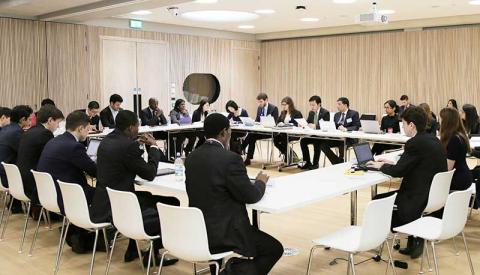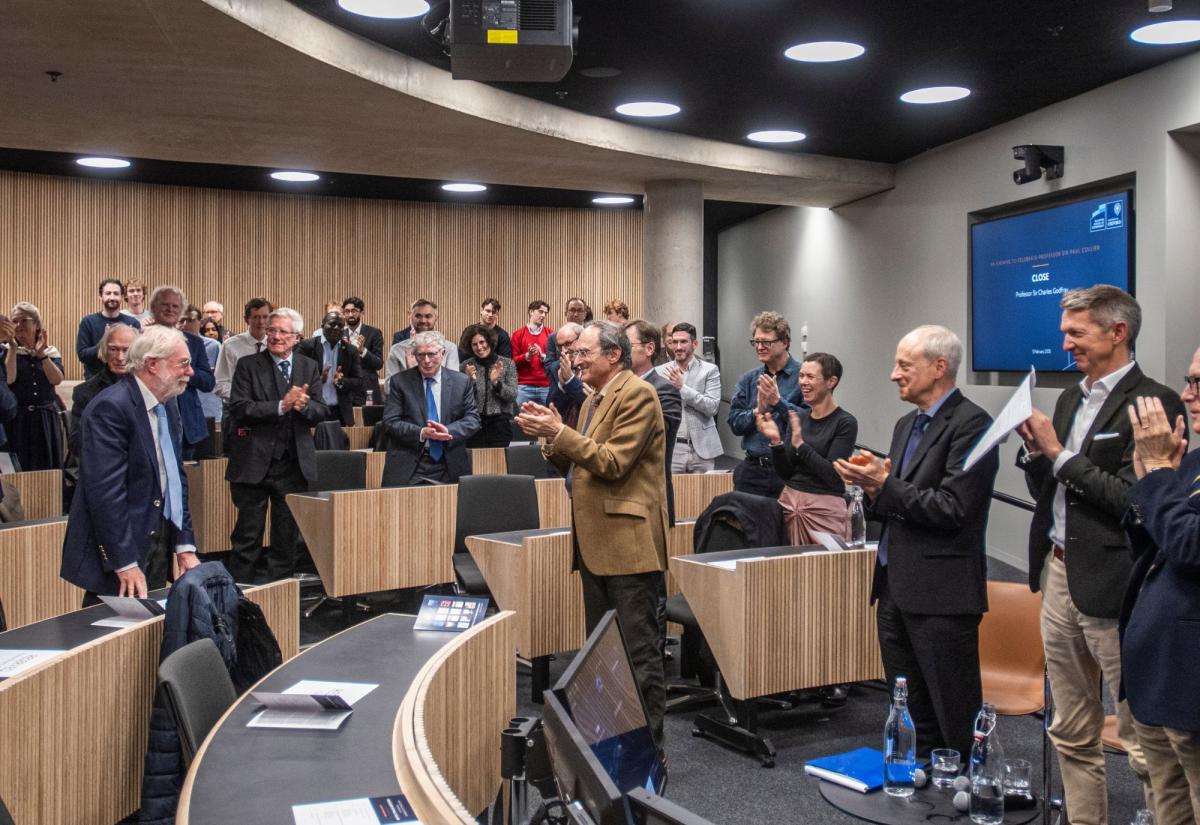Climate change, forced migration, and trade negotiations present some of the most complex challenges for governments and the societies they serve. None can be resolved by one country alone, and all require global levels of cooperation among individuals and institutions from multiple sectors and communities.
Now our MPP students have been challenged with resolving these issues in an intensive policy simulation exercise. For the past few weeks, students have been preparing to represent a country or another actor in the simulated negotiations taking place here at the School on 10-11 March. Each student has been tasked with ascertaining the interests of their adopted role, and applying their full range of political savvy and practical skills to obtain an outcome that best serves those interests.

The policy simulation exercise is an exciting but challenging part of the MPP course. It aims to give students an opportunity to apply the practical skills and policymaking strategies they have studied so far, such as strategic thinking, public speaking and coalition-building. In previous years, there has been one scenario for the whole class to participate in. This year, three members of our faculty have developed scenarios in three very different challenge areas: climate change and adaptation, international refugee policy, and the trans-pacific partnership (TPP) trade negotiations. The exercise gives students further exposure to the wide-ranging and inter-related policy issues or interests of different stakeholder groups in each of these challenge areas.
About the climate simulation
The 22nd Session of the Conference of the Parties to the United Nations Framework Convention on Climate Change (COP22) will take place in Marrakesh in November of this year. The climate policy simulation will take students through the experience of those negotiations, by asking them – in their roles as country representatives or non-state actors – to determine how to achieve the promises made through the Paris Agreement from the COP21 negotiations in 2015.
About the Refugee Policy Simulation
This simulation brings together a variety of representatives from key states (in and outside the EU), European institutions, other inter-governmental agencies (IOM, UNHCR, etc), civil society actors (MSF, etc), and party political elites. The agenda is to renegotiate the Common European Asylum Policy (CEAP), its attendant directives (on eligibility, reception, and so on), and the Dublin II Protocol. The hoped for result include two core elements: a response to the immediate humanitarian crisis, and a clearer vision on the long-term future of European asylum policy and refugee policy.
About the TPP Policy Simulation
The TPP is one of the most ambitious trade deals ever signed, and aims to write new rules for the 21st century global economy in many areas. A particularly controversial aspect of the TPP negotiations was their secrecy – the negotiations were held behind closed doors, with only government representatives in the room. The simulation follows this approach and students representing non-state actors will have to lobby government representatives throughout the negotiations. The discussions will take into account many of the policy issues that have been raised so far in public debates: levels of patent protection for pharmaceutical companies; the extent to which trade rules should be allowed to limit government involvement in the economy; whether and to what extent foreign companies should have the right to take governments to international arbitration; and the extent to which labour and environmental standards should be enforced through trade agreements.



